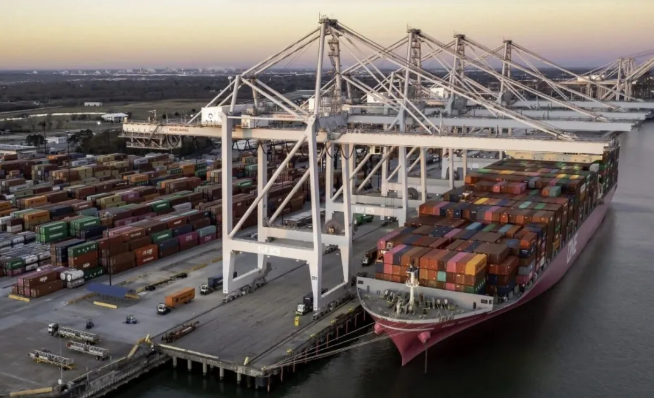The Port of Antwerp-Bruges has begun to clear the backlog of ships after temporarilyending the strike action, which could take days.
Shipping traffic at the Port of Antwerp-Bruges resumed operations on the morning of the 1th, after pilots temporarily suspended their action due to a strike that lasted nearly two days. However, the port warned that it could take days to clear the backlog of ships waiting enter and leave the port.
The disruption stemmed from a nationwide general strike called by trade unions to protest federal pension and labor market reforms. Since Monday night, all traffic in the port had been suspended, bringing vessel activities to a complete halt.
The Belgian Seafarers' Association (Beroepsvereniging vanoodsen) issued a statement on October 14th saying that its members temporarily suspended their action to allow negotiations to take place and demanded that the Flemish government demonstrate in fulfilling the June 2nd agreement by October 24th.
The port authorities said they were able to resume normal operations as the associations paused their protests.As a result, a gradual improvement can be noted, although the availability for different sailings can only be fully determined from late afternoon," it added.
The Port Antwerp has been facing increasing operational challenges since October 5th, when Flemish seafarers began taking industrial action to protest the federal government's proposed pension reform These measures include: restricting workers' hours to office hours and mandating rest periods (from 8 a.m. to 5 p.m.), and crewing only between 10 a.m. and 5 p.m.
The disruption has led to a severe backlog, with more than 60 ships waiting depart and about 100 ships waiting to enter the port. The agency said it was too early to determine the pace at which normal operations would return, warning that it take days to clear the congestion.
Meanwhile, the Port of Rotterdam is also facing pressure.
According to Nieuwsblad Transport, the Port of Rotterdam does not have the capacity to relieve the pressure on Antwerp as it is also facing labor unrest. Employees of lashing companies ILS and Matrans on strike last Wednesday, initially planned for 48 hours, but the strike was extended indefinitely on Friday without an agreement on the proposed 7% pay increase. Then, court injunction temporarily suspended the action over the weekend, and negotiations between the FNV union and the company resumed this week, raising hopes for a new collective agreement before Thursday.
The discussions reportedly focused on wages, with the employer citing well-paid dockers and the workers mentioning irregular working hours and the conditions of physical labor. Nieuwsblad reported that ILS has increased its offer, although Matrans has not yet followed suit, narrowing the gap and suggesting a deal could be within reach. Without dockers, container operations in Rotterdam, a major European hub, still face the risk of disruption, and the pressure is increasing across Europe's ports

